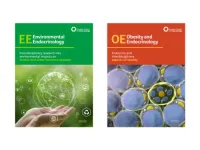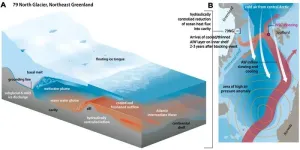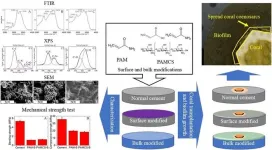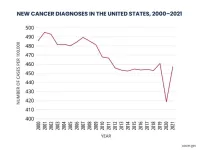Placebo pain relief and positive treatment expectations are not caused by dopamine
New randomized study of 168 people investigates the neurochemical underpinnings of the placebo-effect
2024-09-24
(Press-News.org) New findings argue against a direct causal role for dopamine during the experience of a treatment effect in the establishment of positive treatment expectations and placebo analgesia in healthy volunteers, according to a study published September 24th in the open-access journal PLOS Biology by Ulrike Bingel from University Hospital Essen, Germany, and colleagues.
Dopamine-based reward and learning mechanisms have been suggested to contribute to placebo effects. However, the exact role of the brain messenger molecule dopamine in their generation and maintenance is still unclear. To fill this knowledge gap, Bingel and colleagues examined the causal role of dopamine in expecting positive treatment effects, as well as the magnitude and duration of their effects on pain. To this end, they used an established placebo pain relief paradigm in combination with two opposing medications to change dopamine levels in the brain, i.e., the dopamine antagonist sulpiride, the dopamine precursor L-dopa, and an inactive pill with no medication as control, which were applied in an experimental, double-blind, randomized, placebo-controlled trial involving 168 healthy volunteers.
The study medication successfully altered dopaminergic tone during the conditioning procedure. Contrary to the hypothesis, the medication did not modulate the formation of positive treatment expectation and placebo analgesia tested one day later. Placebo analgesia was no longer detectable on day eight after conditioning. Overall, the data provided strong evidence against a direct dopaminergic influence on the generation and maintenance of placebo effects.
The results suggest that, while dopamine is evidently not necessary for establishing placebo analgesia, certain dopamine-dependent dimensions of reward processing which are more linked to active agency and motivational aspects may still interact with the pain experience. In addition, the results contribute to a more nuanced understanding of the neurobiology underpinning placebo analgesia, which aids the characterization of the intricate interplay between cognition, neurochemistry, and treatment outcome.
According to the authors, further exploration of the neurochemical mechanisms underlying placebo analgesia remains paramount in the quest to exploit these effects for optimal treatment outcomes. In particular, future efforts to advance the understanding of dopaminergic mechanisms for modulating treatment response in pain must consider the undoubtedly complex involvement of dopaminergic neurotransmission in pain and its modulation.
The authors add, “Our research is driven by the motivation to target the underlying mechanisms of placebo effects to make active medical treatments more effective. The results of our study help to redirect the search for novel treatment targets to achieve this goal.”
#####
In your coverage, please use this URL to provide access to the freely available paper in PLOS Biology: http://journals.plos.org/plosbiology/article?id=10.1371/journal.pbio.3002772
Citation: Kunkel A, Asan L, Krüger I, Erfurt C, Ruhnau L, Caliskan EB, et al. (2024) Dopamine has no direct causal role in the formation of treatment expectations and placebo analgesia in humans. PLoS Biol 22(9): e3002772. https://doi.org/10.1371/journal.pbio.3002772
Author Countries: Germany, United Kingdom
Funding: This work was funded by the Deutsche Forschungsgemeinschaft (DFG, German Research Foundation, https://www.dfg.de/; Project-ID 422744262 - TRR 289, to UB; and Project ID-FU 356/12 - UMEA, to LA) and the Medical Faculty Essen and Stiftung Universitätsmedizin Essen (Project ELAN, https://www.uni-due.de/med/elan/, to IK). The funders had no role in study design, data collection and analysis, decision to publish, or preparation of the manuscript.
END
[Attachments] See images for this press release:
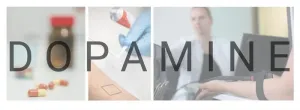
ELSE PRESS RELEASES FROM THIS DATE:
2024-09-24
Guideline highlights:
The American Heart Association and the American College of Cardiology joint guideline addressing cardiovascular evaluation and management of patients before, during and after noncardiac surgery reviews a decade of new evidence and provides updates since the last guideline in 2014.
The updates in the guideline are intended for patients scheduled for noncardiac surgery from preoperative evaluation through postoperative care and include appropriate use of cardiovascular testing and screening, management of cardiovascular conditions and risks, and recommendations for those taking sodium-glucose ...
2024-09-24
ROCKVILLE, MD – The Biophysical Society is pleased to announce that Silvia Cavagnero, PhD, of the University of Wisconsin-Madison, has been named the recipient of the 2025 Emily M. Gray Award. Cavagnero will be honored at the Society’s 69th Annual Meeting, being held in Los Angeles, California from February 15-19, 2025.
Cavagnero is being honored for developing courses, innovating instructional methods, mentoring students at all levels, and promoting diversity in biophysics.
“Silvia is an accomplished biophysicist and a born educator,” ...
2024-09-24
The European Society of Endocrinology (ESE) is delighted to announce the launch of two new multidisciplinary, open-access journals, Environmental Endocrinology and Obesity and Endocrinology. The Journals will be published by Oxford University Press, with the launch issues scheduled for Q2 2025. Submissions are now being welcomed via the Journals' websites.
Environmental Endocrinology will publish high-quality clinical, translational, and basic research on all aspects of environmental impacts on hormone systems in humans and living systems, incorporating the One Health perspective. The Journal will welcome submissions from a broad range ...
2024-09-24
Northeast Greenland is home to the 79° N Glacier – the country’s largest floating glacier tongue, but also one seriously threatened by global warming: warm water from the Atlantic is melting it from below. Experts from the Alfred Wegener Institute have however now determined that the temperature of the water flowing into the glacier cavern declined from 2018 to 2021, even though the ocean has steadily warmed in the region over the past several decades. This could be due to temporarily changed atmospheric circulation patterns. ...
2024-09-24
WASHINGTON, Sept. 24, 2024 – Coastlines are vital to our world’s ecology and economy. Coastal ecosystems help maintain biodiversity, provide natural barriers against erosion, storms, and flooding, and act as large carbon sinks to reduce greenhouse gases. Sustainable fisheries and seaside tourist venues support local economies.
Natural coastlines, including coral reefs, marshes, and mangroves, are complete and stable, capable of self-regulation and restoration. That is, unless human interventions, such as urbanization, overdevelopment, pollution, and human-made erosion, make these areas vulnerable to devastation.
Artificial coastlines, ...
2024-09-24
About The Study: The findings of this study suggest that absolute and functional iron deficiency affect a large proportion of American adults even in the absence of anemia, heart failure, or chronic kidney disease. Further research on the role of functional iron deficiency in adverse health outcomes and on iron deficiency screening strategies is needed.
Corresponding author: To contact the corresponding author, Leo F. Buckley, Pharm.D., M.P.H., email lfbuckley@bwh.harvard.edu.
To access the embargoed ...
2024-09-24
About The Study: Rural-residing children with medical complexity were significantly more likely to present to hospitals without dedicated pediatric services in this cohort study. These findings suggest that efforts are justified to ensure that all hospital types are prepared to care for children with medical complexity.
Corresponding author: To contact the corresponding author, JoAnna K. Leyenaar, M.D., Ph.D., M.P.H., email joanna.k.leyenaar@hitchcock.org.
To access the embargoed study: Visit our For The Media website at this link https://media.jamanetwork.com/
(doi: 10.1001/jamanetworkopen.2024.35187)
Editor’s Note: Please ...
2024-09-24
A new look into addiction treatment availability in the U.S. criminal justice system reveals that fewer than half (43.8%) of 1,028 jails surveyed across the nation offered any form of medication for opioid use disorder, and only 12.8% made these available to anyone with the disorder. With two-thirds of people who are incarcerated in U.S. jails experiencing a substance use disorder – in many cases, an opioid use disorder – the failure to make these medications widely available in criminal justice settings represents a significant missed opportunity to provide life-saving treatments in an environment where people in need of care can be easily reached.
The study, published ...
2024-09-24
About The Study: This randomized clinical trial of an in-home, voice-activated cognitive behavioral therapy for insomnia program among breast cancer survivors found that the intervention improved insomnia symptoms. Future studies may explore how this program can be taken to scale and integrated into ambulatory care.
Corresponding author: To contact the corresponding author, Hannah Arem, Ph.D., email Hannah.Arem@medstar.net.
To access the embargoed study: Visit our For The Media website at this link https://media.jamanetwork.com/
(doi: ...
2024-09-24
What: Cancer incidence trends in 2021 largely returned to what they were before the COVID-19 pandemic, according to a study by researchers at the National Institutes of Health (NIH). However, there was little evidence of a rebound in incidence that would account for the decline in diagnoses in 2020, when screening and other medical care was disrupted. One exception was breast cancer, where the researchers did see an uptick in diagnoses of advanced-stage disease in 2021. The study appears Sept. 24, 2024, in the Journal of the National Cancer Institute.
A previous study showed that new cancer diagnoses fell abruptly ...
LAST 30 PRESS RELEASES:
[Press-News.org] Placebo pain relief and positive treatment expectations are not caused by dopamine
New randomized study of 168 people investigates the neurochemical underpinnings of the placebo-effect

